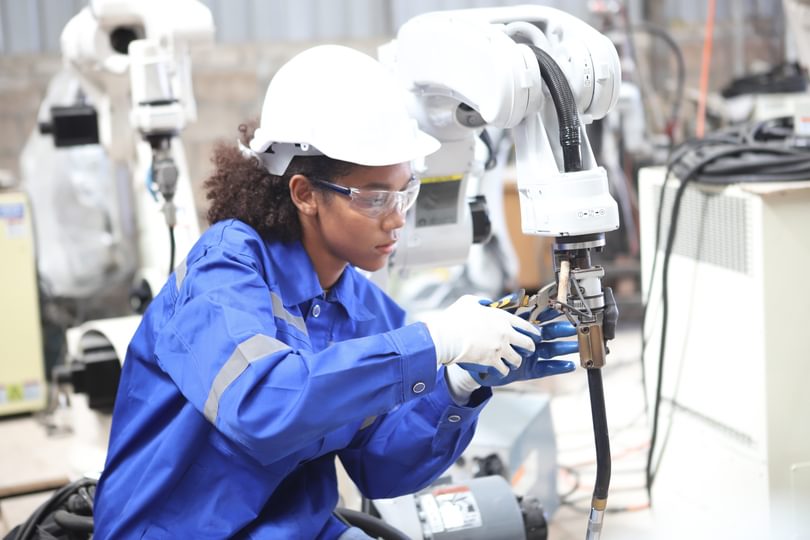
Robotic technology has revolutionised production and manufacturing sectors in industrialised nations, shaping the modern world over the last three decades.
While being transformative in scaling the global economy, these machines have automated routine tasks previously performed by middle-income workers, raising the question of whether robots drive unemployment. Similarly, the argument has been made that the rise of China within the global economy has caused job losses in sectors exposed to Chinese imports.
In a paper published in the Journal of Behavior and Organization, Dr Carl Frey, Dr Chinchih Chen and Dr Giorgio Presidente map how the adoption of robots and competition from Chinese imports has affected labour markets in the UK.
Researchers from the Oxford Martin Programme on the Future of Work found that while the use of industrial robots is uncorrelated to exposure to trade competition from China, they have affected employment in similar ways in the UK. Looking at 352 local authorities across the country, those with industries most exposed to robots and competition from China experienced significant employment declines.
The widespread usage of robots, software and AI is only set to increase, and when it does the impacts of technology on employment could be larger and more pronounced.
However, the impact of robots was found to be much larger than that of imports. IFR data shows that the UK added 3,592 robots over the sample period, which implies that robots displaced 32,328 workers. While the researchers remind us that such back-of-the-envelope calculations must always be taken with a pinch of salt, they believe it does suggest that the impact of robots on overall employment in the UK has been small but non-negligible. Similar calculations for Chinese imports suggest that on average, $1000 of Chinese imports displaced 0.002 workers. Over the sample period, Chinese imports increased by $10,554,500, which implies that 21,109 workers were displaced as a consequence.
These findings are comparable to previous studies found in the US signalling that the UK is on a trajectory to see the same large-scale employment losses as automation scales up, but this does not need to be the case. Similar studies in Germany and Italy showed negligible results due to Chinese imports, while job losses in manufacturing due to automation were offset by gains in other sectors. Frey, Chen and Presidente theorise that this is partly influenced by different institutional factors, such as the greater influence held by trade unions in Germany compared to the UK and the US.
The UK is only at the start of its robot revolution compared to the US. Low wages in the UK labour market are likely to have slowed the adoption of automation and robots, given that companies can achieve their desired profit margins without investment in new technologies. This means Britain still has time to change to become more like Germany and see a future where automation creates jobs and boosts productivity.
The widespread usage of robots, software and AI is only set to increase, and when it does the impacts of technology on employment could be larger and more pronounced. The Future of Work team expects to pursue further research in the space over the coming years to understand how workers and robots coexist as time goes on.